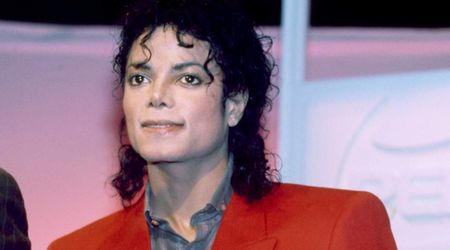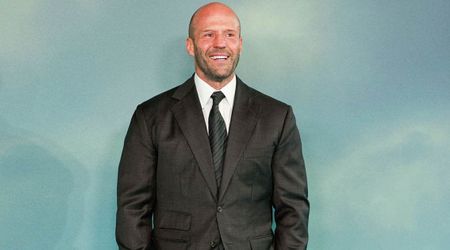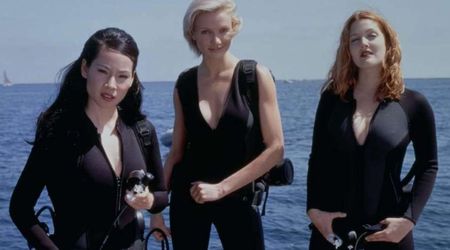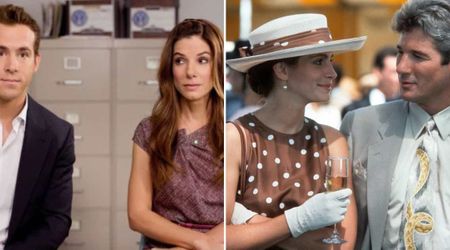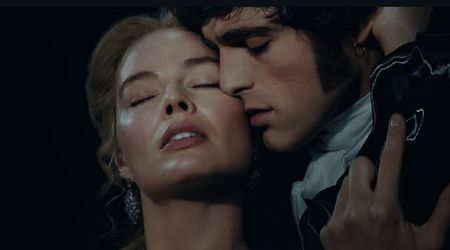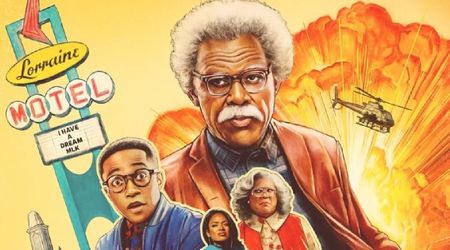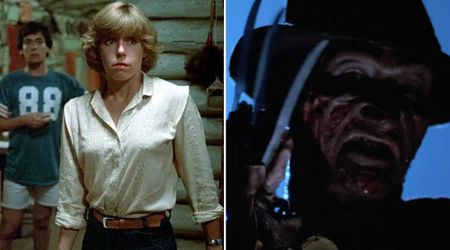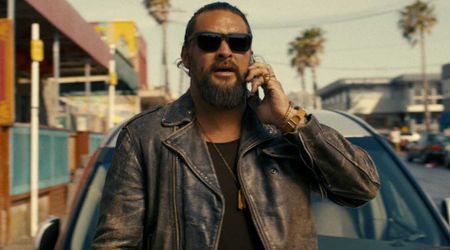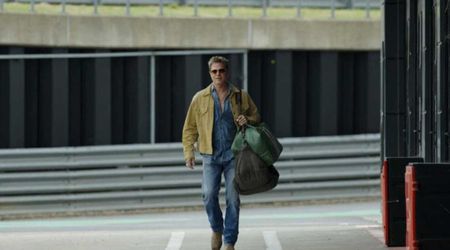EXCLUSIVE | Yeardley Smith says her LGBTQ+ film 'Gossamer Folds' is about social issues plaguing movie industry

While the discussion on LGBTQ+ representation and inclusivity in the film industry has been a prevalent one in recent years, the complexities of this community have gone largely ignored. Transgender characters have often been portrayed in victimized or villainous light in the mainstream, and film has failed to depict the unvarnished account of the struggles that trans people truly face in the real world. Yet there are a handful of depictions of trans people in popular culture that also celebrate and recognize the many problems they grapple with. They portray trans people in all their glory, complexities, and all, as humans and member of the society and not as props. A new film making its way into the library of poignant LGTBQ+ must-watches is 'Gossamer Folds', which tells the story of a unique friendship between a Black transgender woman and young White cisgender boy.
The film is a successful collective effort at thought-provoking filmmaking, produced by Paperclip Ltd, a joint film production venture of actress Yeardley Smith and Ben Cornwell. Smith has captured the hearts of fans of popular animated sitcom 'The Simpsons' as the voice behind Lisa Simpson for over thirty years. Now, as an LGBTQ+ ally, she is giving a platform and voice to a character with an untold story. MEA WorldWide (MEAWW) spoke with Smith, a private donor of the Human Rights Campaign, who dished out details about 'Gossamer Folds'. She also sheds light on the issues of representation, diversity, inclusivity, and the importance of empowering marginalized communities.
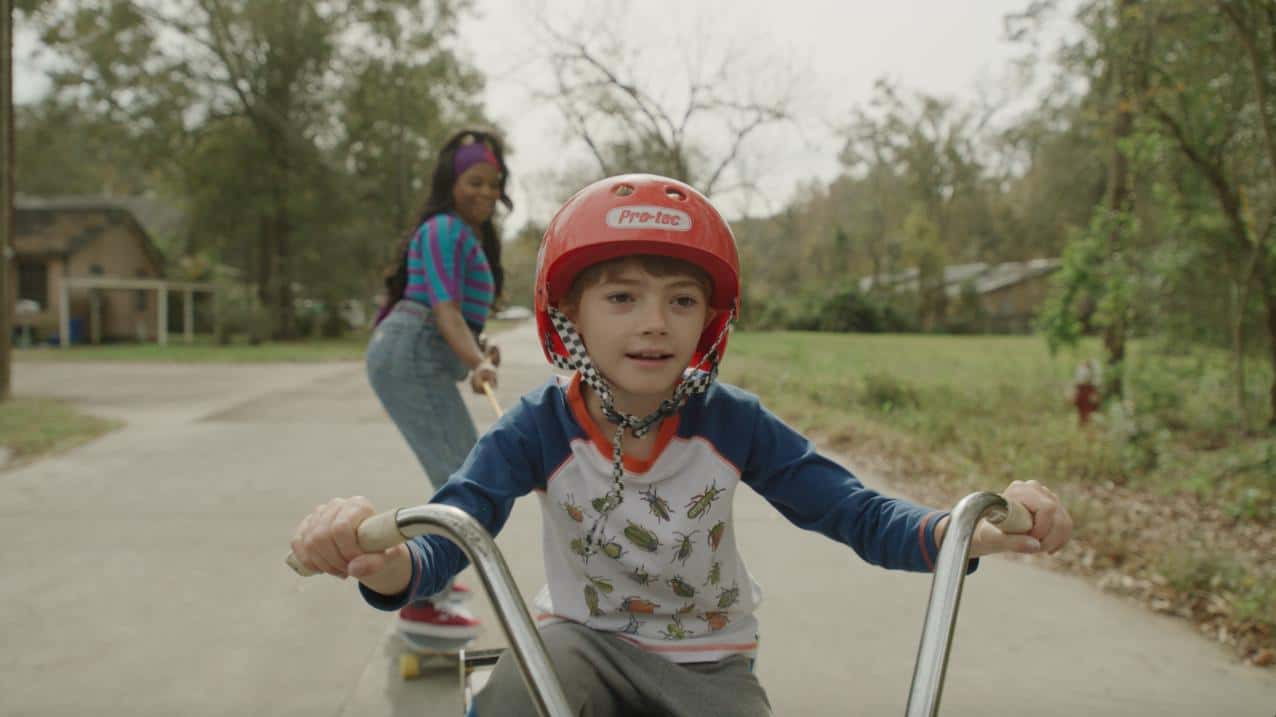
A story of deep and heart-warming friendship, 'Gossamer Folds' is set in 1986 and pans in on 10-year-old Tate and transgender woman, Gossamer. Tate's life is disrupted when he and his family move from the big city to a small town, amidst his parents' shambled marriage. Gossamer and Tate end up being neighbors and befriend each other, finding solace and accompaniment as they grapple with their own struggles. Despite Tate's father's transphobia and his mother's overprotectiveness, their friendship becomes a life-altering experience for them, even transforming the lives of their families.
The selling point of the film for Smith was the great script penned by Bridget Flannery that evokes a sense of belonging. "Even with their age difference, that didn't matter that they were actually able to find so many places to meet in the middle", she added. "And I feel like that's true of misfits everywhere that we ended up finding each other. I think that is so important and is able to foster an optimism inside of anyone who's ever felt like they don't have a place where they belong." Two weeks after Smith had obtained the film, she had decided that she wanted to do the film and produce it via Paperclip Ltd. A GLAAD staffer, Nick Adams, who had written an article for Variety on the need to represent the trans community in a much fuller, more accurate way, caught the attention of Smith. He offered advice during preproduction, pointing out the pitfalls and strengths of the film that they could work around more feasibly. "There's great curiosity and richness in learning about somebody who's so different from yourself," she added.
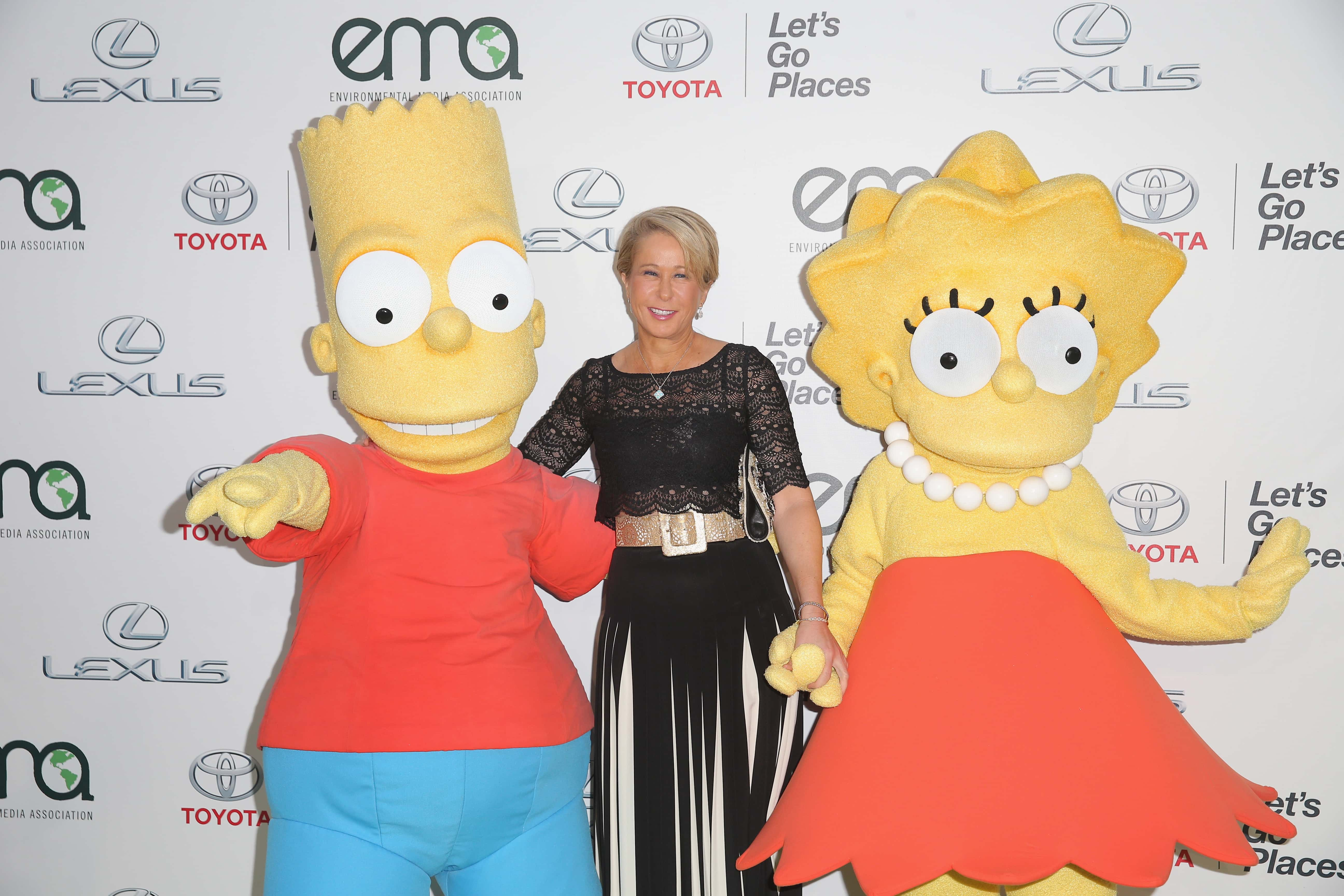
Smith wanted only a trans actress to be considered to play Gossamer, and so it shall be. "I'm a big believer that if you proceed with passion and integrity, the right people show up to do the job," she said. Hopeful trans talents sent in their audition tapes, which Smith agrees is the least ideal way to try and get the role, and Alexandra Grey of 'Transparent' and 'Empire' fame, completely blew her out of the water. "Her audition was so powerful. She went right to the heart of that moment," Smith recounted. "One of my great hopes is that this film is able to get a wide release and people can see Alexandra's performance and this great chemistry that she has with Jackson Robert Scott, who plays a little boy, cause I really think Alexandra is going to be a huge star."
The French-born American actress has had an illustrious career spanning nearly four decades, and she has witnessed misrepresentation of LGBTQ+ and marginalized communities in the industry, although not first hand. However, she also watched as the industry dynamics have evolved to become more inclusive and diverse. "At Paperclip while, we aren't, a sort of a mainly political development company, we absolutely welcome stories about the LGBTQ+ community," said Smith. What she loved about Gossamer was the fact that it didn't entirely focus on the hardships of being trans, but that "it's a story of what it means to find where you belong". She further expressed, "We just love great stories and really look forward to more opportunities to tell stories about people who have a completely different experience than most of what we've seen in show business for the last so many years, hundreds of years. I'm all about it."

The lives, struggles, and progress of people that identify as LGBTQ+ and the minority communities have been reflected in popular culture in myriad perspectives that may sometimes be the basis of misconceptions and social stigma. Evidently more efforts have to be made to curb industrial transphobia and racism while boosting inclusivity and diversity. "There needs to be a great push to just include them really in the general casting population, as wonderful actors and stop calling out there are different. Same with people of color," said Smith. Citing Grey's future goals in the film industry, Smith noted that the young transgender actress has expressed her interest in playing characters that aren't trans, and instead hopes to assume roles like an African-American woman who is a lawyer.
She talked about "normalizing" the LGBTQ+ community and said that there needs to be a great push to include them in the general casting population. "We should just include them as genuine, legitimate, everyday candidates for these parts that are being written because they're terrific actors and actresses, and also behind the scenes as well," she added. Diversity and inclusion have become an important conversation in recent times that has taken over the industry. But there is still more to be done to ensure that the LGBTQ+ community is fairly represented in this talking point. Smith strongly believes that people have to not just talk about it but have to take action, and she deems Paperclip has a responsibility to be part of the change.
"We've had moments like this throughout history where everybody is collectively outraged about the current injustices, but then there's sometimes a great distance between the outrage and then the action. So, um, and I do believe that change happens one person at a time," she said mentioning Hank Azaria, who stepped down from his role as the voice of the South Asian and African-American character, Apu and Carl, on 'The Simpsons'. "It's incumbent upon those of us who have the opportunity to have some of these positions to actually be part of the change." Uplifting the voices of the marginalized, Smith highlighted, is all about keeping the conversation alive. In some ways, it is also a double-edged sword, because while there is an information overload thanks to the news, what may seem important one moment may also soon be forgotten.
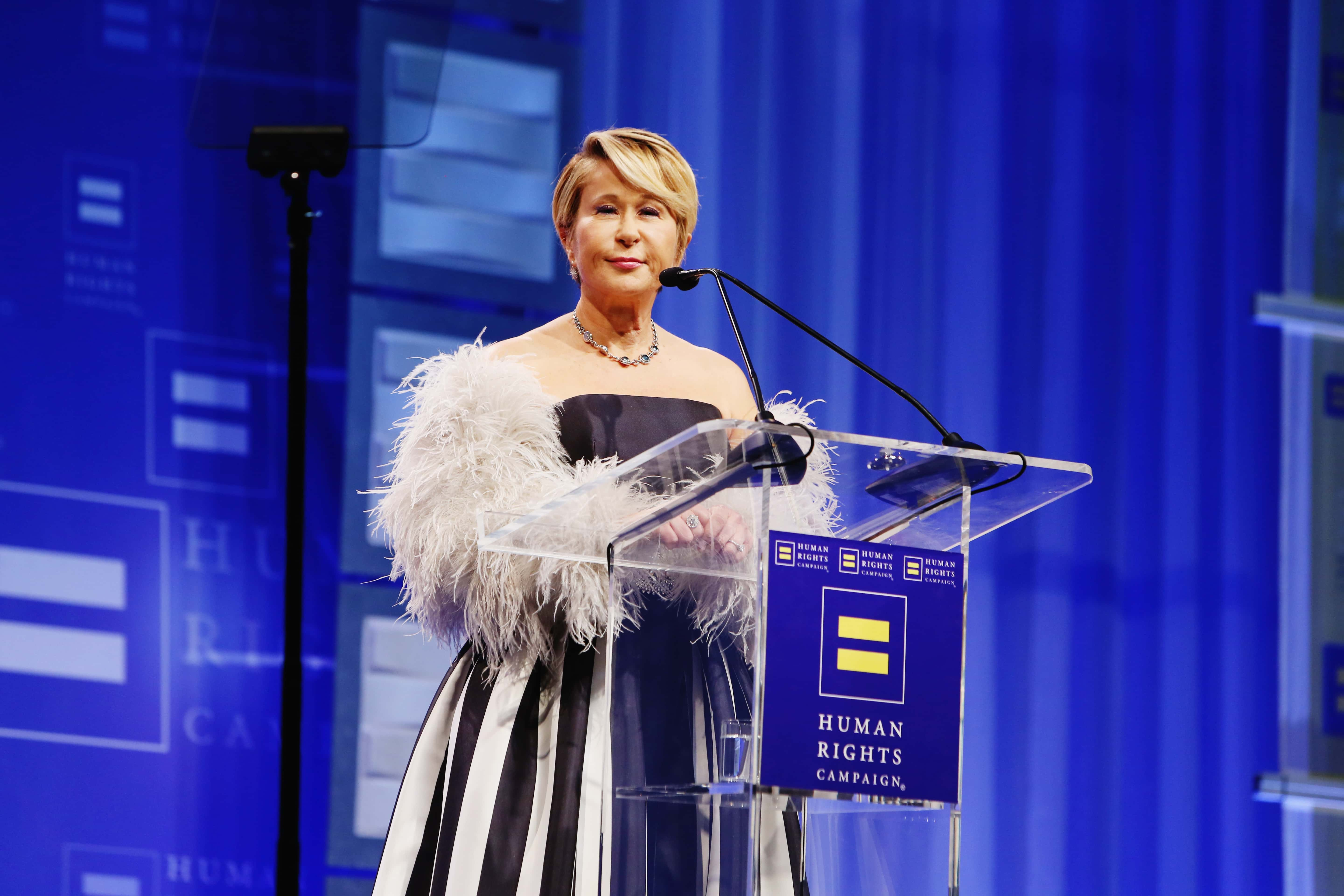
"It is like any fight, where you have people in government who have an opportunity to set policy, don't give a s**t about what your cause is about," Smith concurred. "You know, we have a lot of people in our government who don't consider LGBTQ+ issues to be at the forefront of something that requires change." And although there obviously are people who consider these issues to be of paramount importance, "at the end of the day, we need to make concrete policy changes in the way that we govern in this country," she added, instilling the importance of voting. "And so in that regard, I just don't believe that even if somebody is different from you, you don't get to cherry-pick people's human rights just because they're different from you. That is not what the, what this country is about is not what the constitution is about." She ultimately believes that there is a massive grassroots effort to bring LGBTQ+ issues to light: "We really need to make changes at the top."
On what her personal inferences have been from the experience of filming 'Gossamer Folds', Smith said she felt like she had an incredible luxury to not necessarily be beholden to somebody else who might want to steer the ship in a direction that she didn't agree with. "I really believe that there's sort of a great kind of golden aura around this film that there's so much heart, so much hard work, such love and desire to do it the right way that I feel like this film is sort of like 'The Little Engine that Could, and it's so gratifying," she added. She felt enormously pleased, proud, and grateful to be able to make movies and to develop projects for Paperclip. "That means something to me that I feel like have a reason for being," she expressed. Smith hopes that her fans and 'Gossamer Folds' viewers fall in love with Gossamer and Tate, and take away from the film that "hate is learned" and that "it's not a foregone conclusion that each and every one of us has an opportunity to reject that way of thinking and to change the trajectory". She reinforces her earlier statement that one person can make a massive difference. "It really is every drop in the bucket and then eventually the bucket is full".
'Gossamer Folds' will screen virtually at the Bentonville Film Festival during a 24-hour window on August 13. Smith, Director Lisa Donato, and Grey will be available for a virtual Q&A on August 14.

